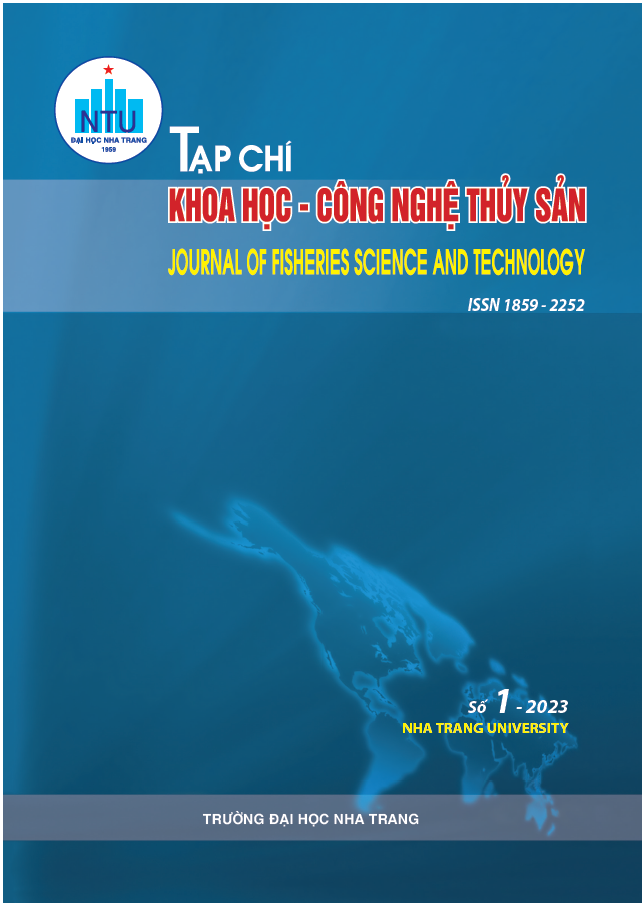##plugins.themes.huaf_theme.article.main##
Abstract
Acute hepatopancreatic necrosis disease (AHPND) or early mortality syndrome (EMS) is caused by Vibrio parahaemolyticus strains carrying the toxin gene pirAB and has caused severe losses for the global shrimp industry. Using beneficial microbes as an alternative to antibiotics is considered one of the most effective methods in preventing the outbreak of AHPND in shrimp production systems today. In the present study, 33 Bacillusisolates obtained from mangrove sediment and grown-out shrimp samples in Khanh Hoa Province were screened for their probiotic properties against pirABVp-bearing V. parahaemolyticus strains. Among the investigated isolates, nine strains showed clear antagonistic activity and extracellular enzyme productions such as amylase, protease, cellulase. No hemolytic activity was detected in Bacillus CCT-Ba9 and CCT-Ba42, indicating their safety as good probiotic candidates. Biochemical and 16S rRNA sequencing analysis identified them as B. pumilus and B. subtilis, respectively. Both species could grow within a pH range from 4.0 to 8.0 and salinity from 0 to 50‰. Our results demonstrated that Bacillus CCT-Ba9 and CCT-Ba42 are promising probiotic strains and may have applications to prevent/control the outbreak of AHPND in shrimp aquaculture.

